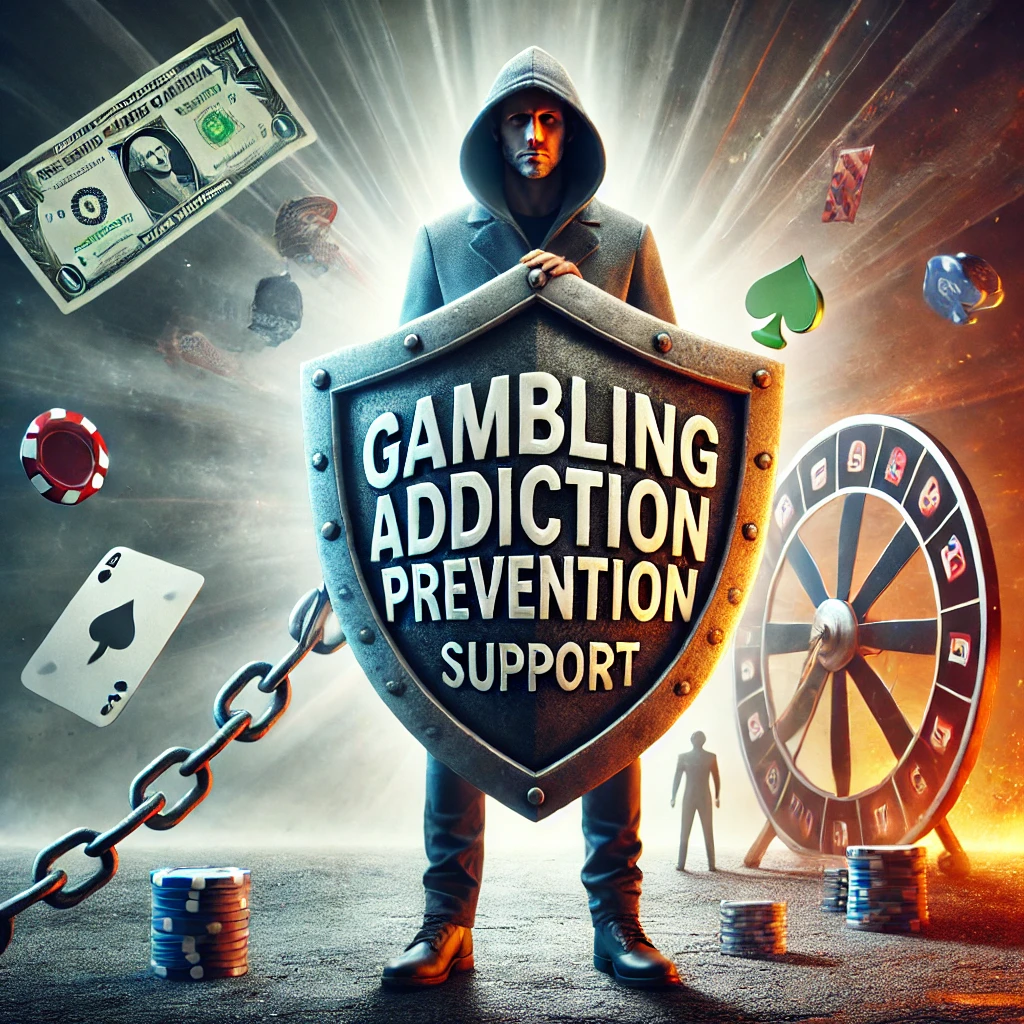While gambling can be an enjoyable form of entertainment, it carries the risk of addiction, which can have severe personal and financial consequences. Maintaining a healthy relationship with betting is crucial to prevent gambling addiction. Here are the best tips and strategies to help you enjoy gambling responsibly.
What is it About Gambling that Attracts so Many?
Gambling addiction, also known as pathological or disordered gambling, occurs when a person cannot stop betting despite negative consequences. It can harm personal relationships, work, and mental health. Recognizing the symptoms of problem gambling is the first step to preventing it.
Symptoms of Gambling Addiction
- Preoccupation with Gambling: Constantly thinking about gambling, planning the next venture, or finding ways to get money for gambling.
- Increasing Bets: Needing to bet more money to achieve the same excitement.
- Unsuccessful Attempts to Stop: Repeatedly trying to reduce or stop gambling without success.
- Gambling to Relieve Problems: Using gambling as an escape from stress, anxiety, or other issues.
- Chasing Losses: Trying to win back lost money by continuing to gamble.
- Lying and Concealing: Hiding the extent of gambling from family or friends.
- Jeopardizing Relationships and Opportunities: Neglecting responsibilities and damaging relationships due to gambling.
How to Avoid Addiction
Set Clear Limits
Setting strict time and financial boundaries is essential to control your gambling habits.
- Set a Time Limit: Decide on specific periods when you can gamble and stick to them. Avoid playing for extended periods.
- Set a Money Limit: Determine the maximum amount of money you are willing to lose. Never gamble with money meant for essential expenses like rent or groceries.
Monitor Your Betting Transactions

Keeping a log of your gambling activities helps you stay aware of your behavior and spending.
- Track Wins and Losses: Record your wagers, amounts, and outcomes. This provides perspective on your gambling performance and prevents delusions.
- Track Time Spent: Monitor how long you gamble to ensure it does not become a significant part of your life.
Avoid High-Risk Situations
Identify and avoid situations or emotional triggers that may lead to excessive gambling.
- Don’t Gamble When Upset: Avoid gambling when feeling stressed, anxious, or depressed. Find healthier ways to cope with these emotions.
- Avoid Temptation: Stay away from places, people, or events that trigger the urge to gamble. For example, avoid visiting casinos if they incite excessive gambling.
Learn About Betting Odds
Understanding the odds can help you make more informed and less impulsive decisions.
- Know the House Edge: Recognize that every casino game has a house edge, meaning the odds favor the casino.
- Understand Random Results: Realize that gambling outcomes are random, and past results do not influence future outcomes. Avoid the fallacy of thinking that past events predict future results.
Engage in Other Activities
Diversifying your interests helps reduce the time and focus on gambling.
- Hobbies and Interests: Engage in activities you enjoy, such as sports, reading, music, traveling, or cooking.
- Social Life: Spend time with friends and family to fulfill your social needs and reduce the urge to gamble.
Seek Support and Counseling
If you find yourself struggling to control your gambling, seeking help is essential.
- Confide in Family or Friends: Talk to trusted individuals about your gambling concerns. They can offer support and accountability.
- Get Professional Help: Consult a counselor or therapist specializing in gambling addiction. Professional advice provides tools and resources to curb the habit.
Utilize Responsible Gambling Software
Take advantage of responsible gambling features and tools to manage your betting activities.
- Self-Exclusion Programs: Temporarily ban yourself from gambling sites to take a break and regain control.
- Set Deposit Limits: Control your spending by setting daily, weekly, or monthly deposit limits.
- Regular Reality Checks: Use reminders to track the time spent gambling and avoid losing track of time.
Establishing a Supportive Environment
Creating a supportive atmosphere can help you maintain responsible gambling habits.
- Group Support: Join support groups or online communities to share experiences and get advice from others facing similar challenges.
- Educational Resources: Educate yourself and those around you about gambling addiction and responsible gaming practices.
Conclusion
Preventing gambling addiction requires proactive strategies and responsible gaming practices. By setting limits, monitoring activities, avoiding high-risk situations, and seeking support, you can maintain a healthy relationship with gambling. Always prioritize your well-being and use available resources to ensure that gambling remains a form of entertainment rather than a problematic habit. Remember, informed and disciplined betting leads to a more enjoyable and balanced experience.
